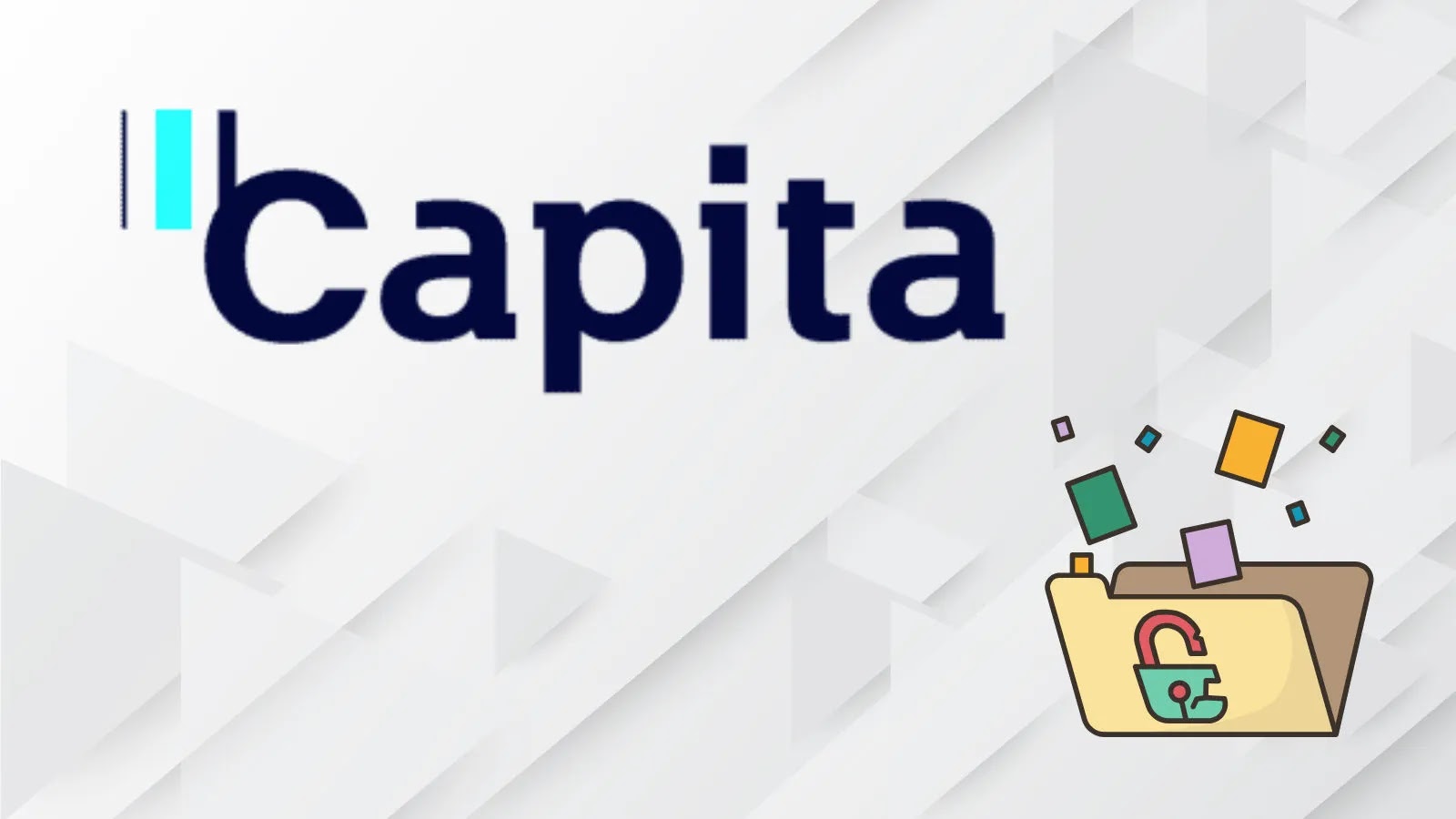
Capita To pay £14 Million For Data Breach Exposes 6.6 Million Users Personal Data
The digital landscape is a minefield, and even the most established organizations are not immune to its hazards. The recent announcement of a monumental £14 million fine levied against outsourcing giant Capita by the UK’s Information Commissioner’s Office (ICO) serves as a stark reminder of the severe repercussions of inadequate cybersecurity measures. This penalty, one of the largest ever imposed, stems from a 2023 cyber attack that catastrophically exposed the personal data of 6.6 million individuals. For cybersecurity professionals, this incident isn’t just a headline; it’s a critical case study in data protection, operational resilience, and the financial ramifications of a breach.
The Capita Breach: A Deep Dive into the Incident
The 2023 cyber attack on Capita, a significant outsourcing provider, sent shockwaves through the industry. While specific details of the initial compromise method were not explicitly detailed in the source, the outcome was devastating: the exposure of sensitive personal data belonging to an estimated 6.6 million people. Such a vast scale of data exposure highlights systemic vulnerabilities that, once exploited, can lead to widespread privacy violations and significant regulatory penalties. The incident underscores the critical necessity for robust security frameworks at every layer of an organization’s infrastructure.
The ICO’s Verdict: A £14 Million Statement
The Information Commissioner’s Office, the UK’s independent authority set up to uphold information rights, did not mince words with its ruling. The £14 million fine is a composite penalty, meticulously apportioned to reflect the distinct responsibilities within the breach. Capita plc was hit with an £8 million penalty, indicating substantial failings at the corporate level. Simultaneously, Capita Pension Solutions Limited received a £6 million fine, pointing to specific deficiencies within their data handling and protection protocols for pension-related data. This segmented penalty emphasizes the ICO’s granular approach to assessing accountability, demonstrating that even subsidiaries are held to stringent data protection standards.
This substantial fine is more than just a financial hit; it’s a clear message to all organizations: data protection is not merely a compliance checkbox but a fundamental operational imperative. The ICO’s decision demonstrates a firm commitment to enforcing GDPR and other data protection regulations, holding companies accountable for their digital security posture.
Understanding the Impact: Beyond the Financial Figures
While the £14 million fine is a significant financial blow, the true impact of the Capita data breach extends far beyond monetary penalties. For the 6.6 million individuals affected, the breach likely led to anxieties about identity theft, fraud, and privacy violations. This erosion of trust can have long-lasting consequences for customer perception and brand reputation. For Capita, the breach represents a significant operational challenge, requiring extensive resources for remediation, customer communication, and rebuilding stakeholder confidence. The incident will undoubtedly serve as a cautionary tale regarding third-party risk management and contractual obligations in outsourcing.
Remediation Actions: Learning from the Breach
While specific remediation actions taken by Capita post-breach are not detailed in the provided source, a breach of this magnitude necessitates comprehensive and robust responses. Organizations can learn valuable lessons through a structured approach to incident response and recovery:
- Immediate Containment and Eradication: The first priority is always to stop the unauthorized access and remove the threat. This involves isolating compromised systems, patching vulnerabilities, and resetting credentials.
- Forensic Investigation: A thorough investigation is crucial to understand the root cause, scope of the breach, and methods used by attackers. This often involves engaging specialized cybersecurity firms.
- Notification and Communication: Promptly and transparently informing affected individuals and regulatory bodies (like the ICO) is paramount, as mandated by GDPR.
- Enhanced Security Controls: Implementing stronger access controls, multi-factor authentication (MFA), network segmentation, and endpoint detection and response (EDR) tools.
- Vulnerability Management and Patching: Establishing a rigorous schedule for identifying and remediating vulnerabilities. This includes regular security audits, penetration testing, and timely application of security patches. While no specific CVE was referenced for the Capita breach in the source, robust vulnerability management is critical.
- Employee Training: Reinforcing cybersecurity awareness and best practices among all employees is essential, as human error often contributes to successful attacks.
- Third-Party Risk Assessment: For organizations engaging outsourcing providers, rigorous vetting of third-party security postures and contractual clauses for data protection become even more critical.
Key Takeaways for Cybersecurity Professionals
The Capita data breach and subsequent ICO ruling offer several critical insights for cybersecurity analysts and IT professionals:
- Proactive Security Investment is Non-Negotiable: The cost of a breach far outweighs the investment in preventative security measures.
- Robust Incident Response Plans Are Crucial: A well-defined and regularly tested incident response plan can significantly mitigate the damage from a cyber attack.
- Third-Party Risk Management: Organizations must meticulously vet and monitor the security practices of their outsourcing partners. A breach at a third-party vendor can have direct and severe consequences for the primary organization.
- Data Protection Regulations Have Teeth: Regulatory bodies like the ICO are demonstrating an increasing willingness to impose substantial fines for data protection failures.
- Trust and Reputation Are Fragile Assets: The long-term impact on an organization’s reputation and customer trust can be more damaging than the immediate financial penalties.
The Capita incident serves as a powerful reminder that in our interconnected digital world, data protection is everyone’s responsibility. Staying ahead of evolving threats requires continuous vigilance, strategic investment, and a commitment to fostering a strong security culture.





